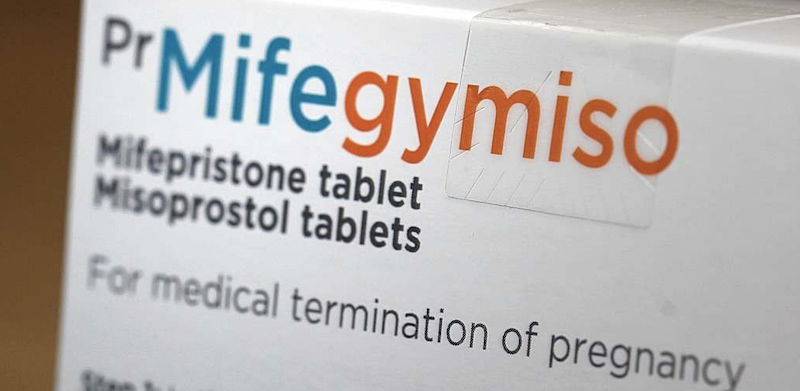Popular depictions of abortion, as featured in the likes of Scandal, Grey’s Anatomy, and Netflix’s Sex Education, depict them as invasive surgical procedures taking place in sterile doctors’ offices. While it’s a sign of progress that the topic of abortion is entering the mainstream, pop culture often neglects that abortions can be self-managed. Although medical self-managed abortion is safe and effective, it remains inaccessible to many seeking to terminate a pregnancy because it challenges misogynistic norms of bodily autonomy that society has yet to relinquish.
Self-managed medical abortion requires taking a Mifepristone tablet followed by four Misoprostol tablets. Together, they are known as the ‘abortion pill’ and have been available for purchase in Canada under the name Mifegymiso since 2017. This abortion pill has been in use for 30 years in countries like China and France, and it is the World Health Organisation’s recommended method of early-term medical abortion: It is a safe and effective means of ending a pregnancy within the first nine weeks.
Despite being safe, effective, and legal, access to Mifegymiso in Canada remains inadequate. While less expensive than surgical abortion, the cost of Mifegymiso still ranges between $300 and $450, and insurance coverage varies among provinces. In Oct. 2018, the Yukon government announced that they would begin covering Mifegymiso. In Quebec, health professionals have to undergo special training before they can prescribe it, limiting patients’ access to the drug.
If it were not subject to these restrictions, Mifegymiso could transform abortion access in Canada. It does not require the medical training or equipment necessary for surgical abortions, meaning that it can be administered by prescribing health professionals like pharmacists and nurse-practitioners. Greater access to Mifegymiso could benefit pregnant people in rural or remote areas who would have to travel hundreds of kilometres to the closest abortion clinic.
Mifegymiso can be taken at home or in another environment where the patient feels most comfortable. This benefits those who commonly experience discrimination and prejudice in medical settings, including indigenous, racialized, fat, neurodivergent, and young patients.
Even though the Supreme Court of Canada decriminalized abortion more than 30 years ago, pregnant people still lack bodily autonomy with regard to their healthcare. Limited access to abortions is only one product of outdated sexual mores. For example, in Ontario, young people are denied comprehensive sex education; and, in other provinces, insurance coverage of contraceptives is limited. As with abortion, these regulations restrict the rights of women, trans, and non-binary people and expose ugly misogynistic structures in a society that likes to think of itself as championing gender equality.
Mifegymiso’s launch in Canada is not only a medical milestone, but a social one as well, challenging the unnecessary regulation of women and trans people’s bodies. But this social development is not optional—medical realities depend on it. The uneven roll-out of Mifegymiso has demonstrated how closely linked medical access can be to social norms. Medical advancements have outpaced social progress. Pregnant people could already be self-managing their abortions—we just need to let them.









